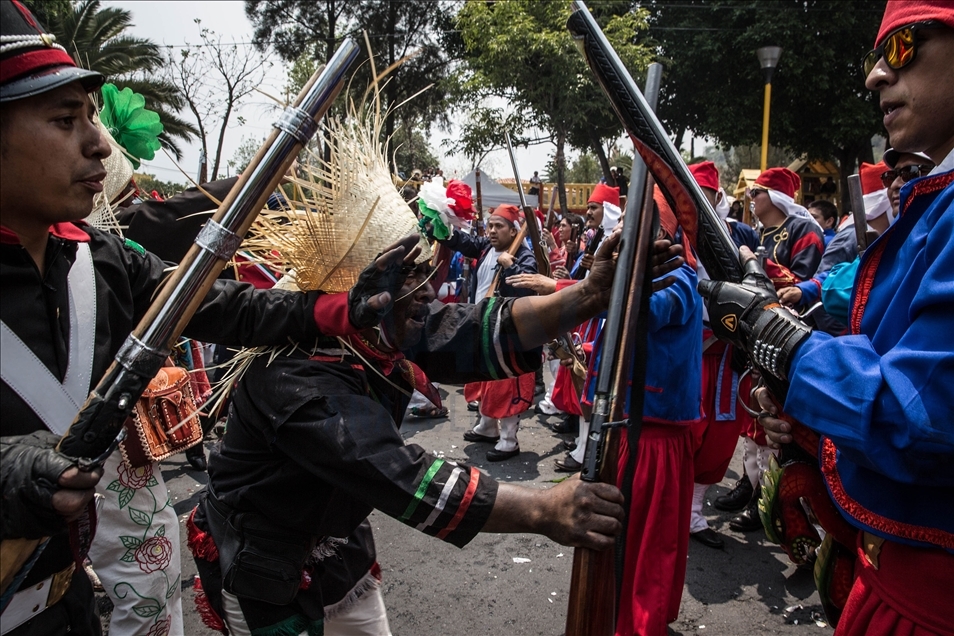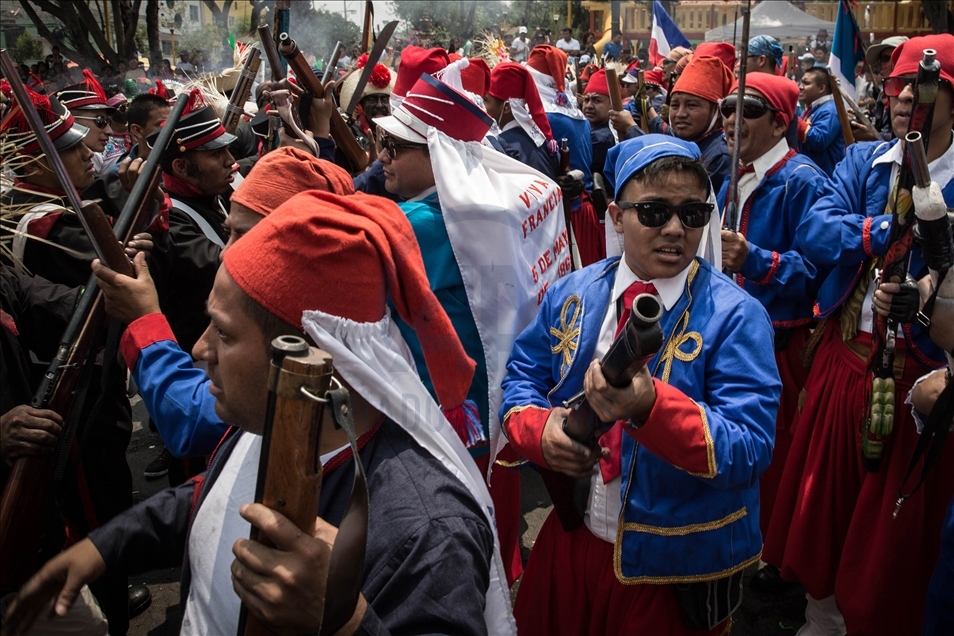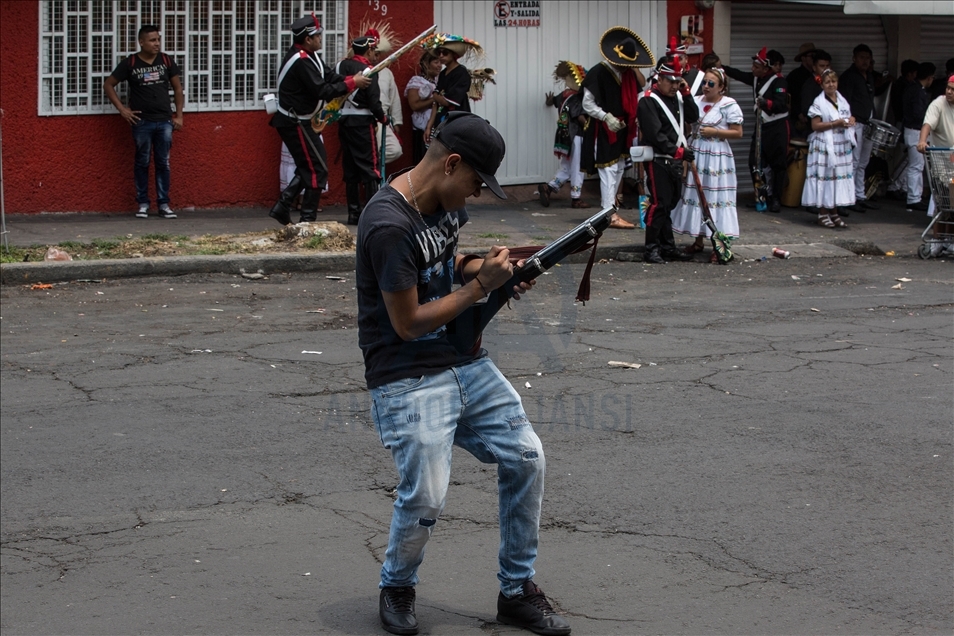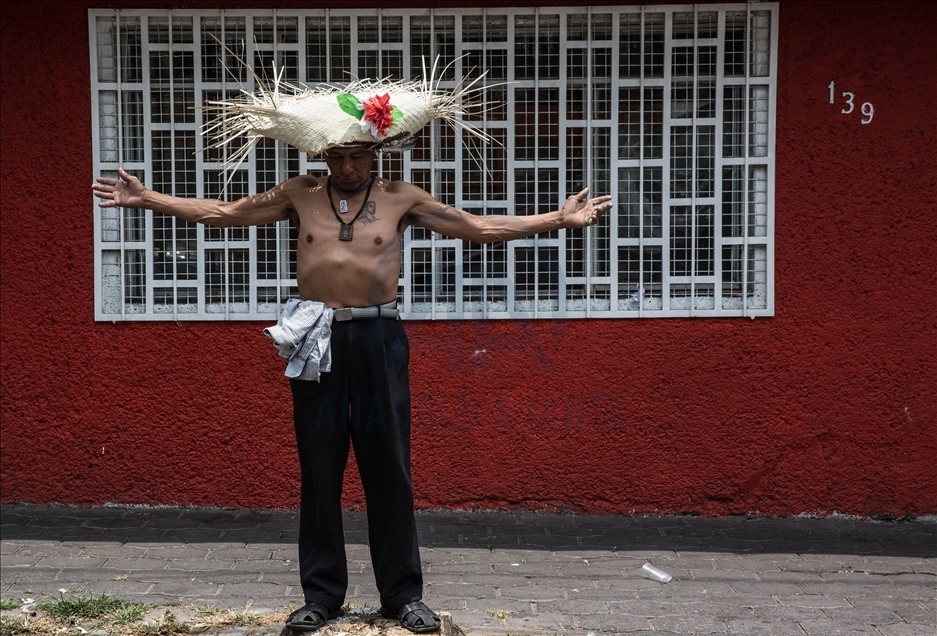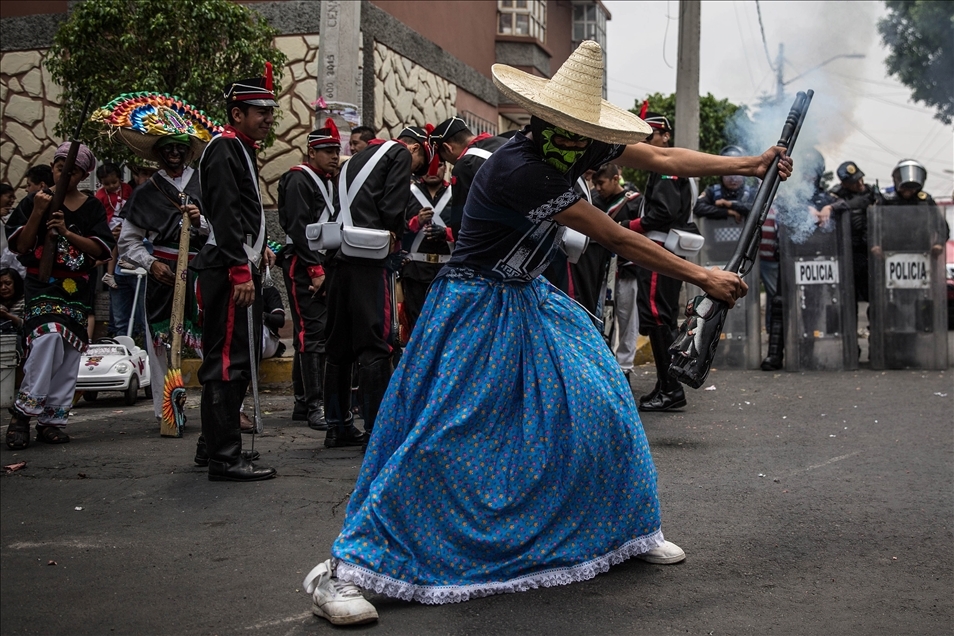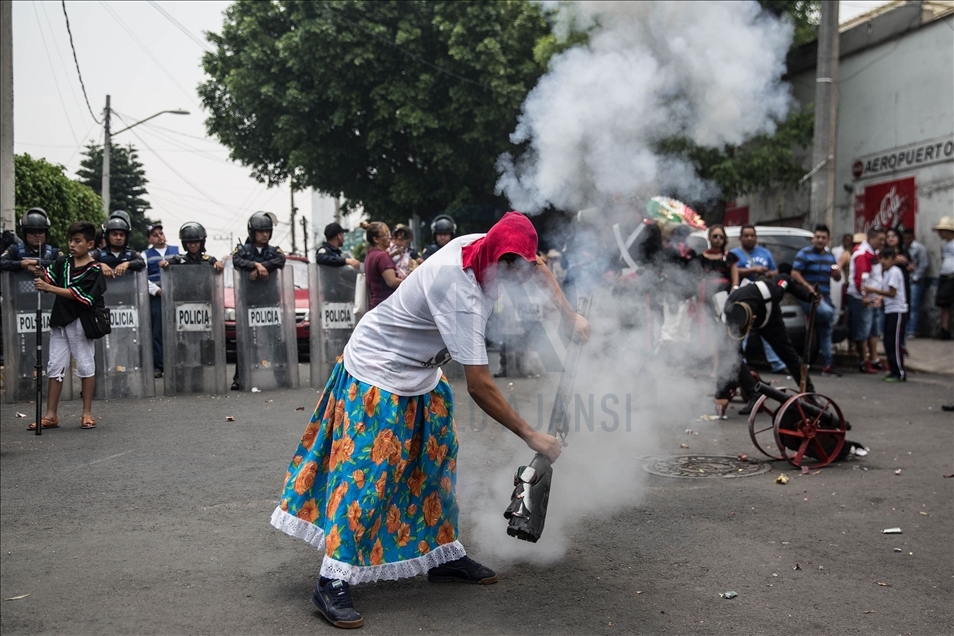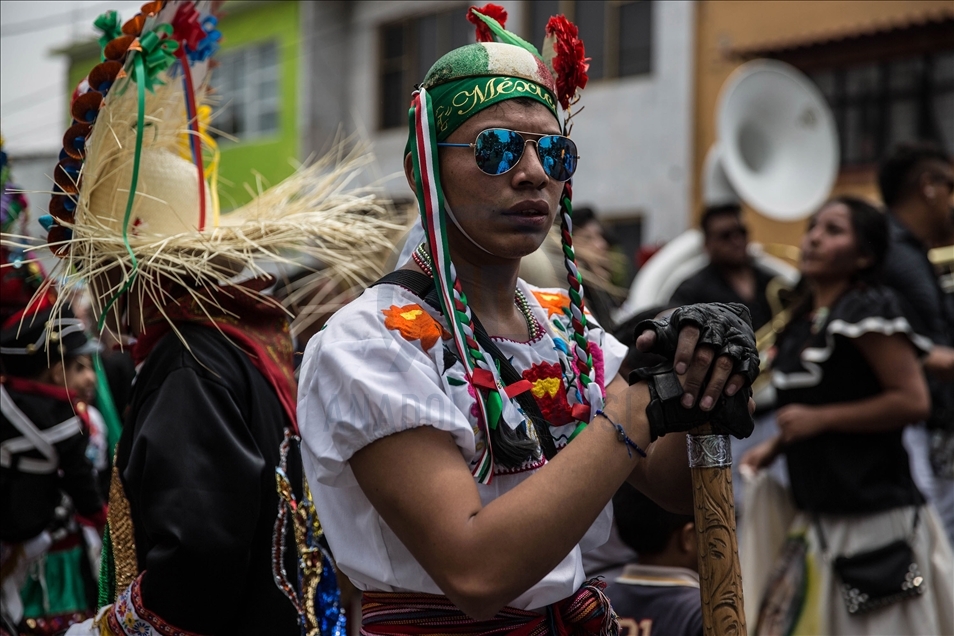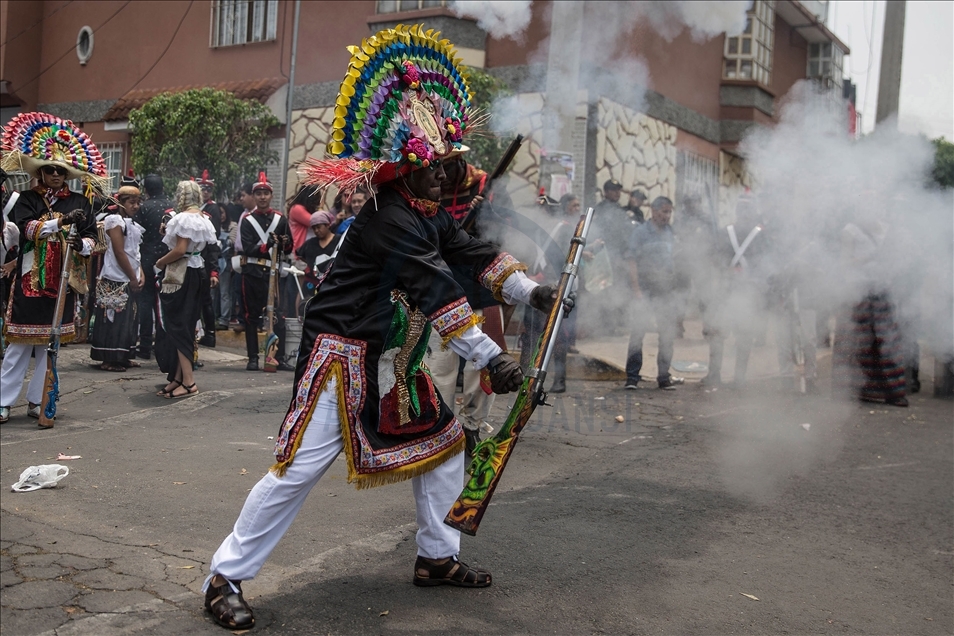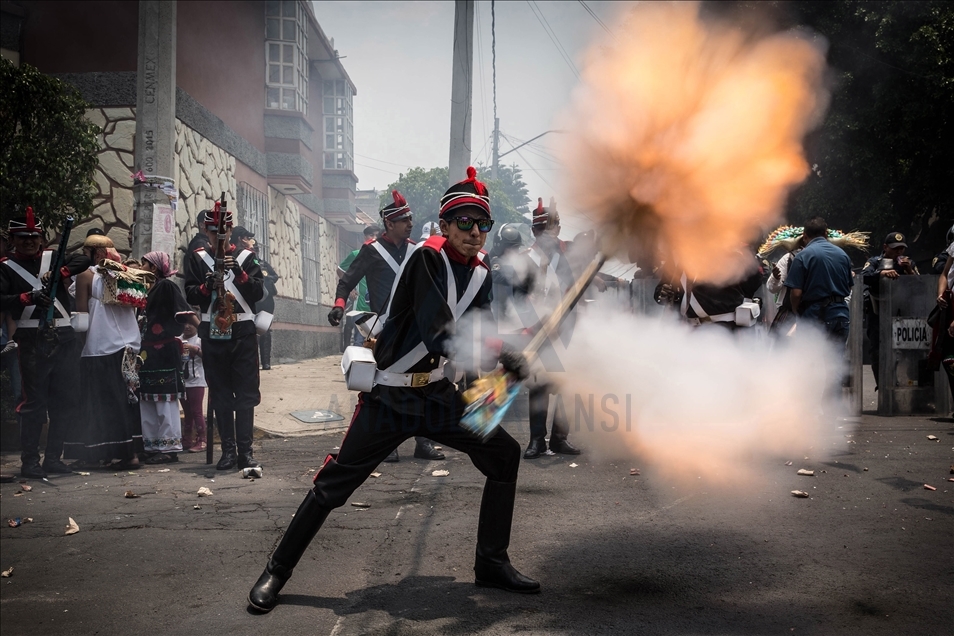What does Mexico remember on May 5th?
Date marks occasion when French were defeated by Mexican army in city of Puebla
 People take part in the representation of the Battle of Puebla -Mexico's victory over France in 1862- during its anniversary celebration in Mexico City, on May 5, 2016 ( Daniel Cardenas - Anadolu Agency )
People take part in the representation of the Battle of Puebla -Mexico's victory over France in 1862- during its anniversary celebration in Mexico City, on May 5, 2016 ( Daniel Cardenas - Anadolu Agency )
MEXICO
On May 5th, Mexico commemorates the battle that took place in the city of Puebla in 1862, when overpowered and outnumbered, Mexican forces defeated an attempted invasion by the French army.
But the Battle of Puebla was not an isolated event, and attempts by the French crown to take over Mexico did not end on May 5, with then-President Benito Juarez facing an economic crisis and a divided country.
"Although we commemorate the battle of May 5, the truth is that after that battle, which we won, there came a series of defeats for the Juarez government that made Juarez have to leave Mexico City and establish his government in itinerancy," said Eduardo Gonzalez, a historian and teacher of international relations at Tecnologico de Monterrey University in Guadalajara.
Mexico in the 19th century
Juarez had on his hands a deeply divided country. In recent years, the country's power was divided into two groups: liberals and conservatives. The latter had the military's support and consolidated its strength in central Mexico and even the capital.
Conservatives were defiant of the Juarez government and tried to overthrow his regime.
They were vastly integrated by the clergy, high-profile military members, and wealthy landowners and merchants. In the centralist governance, protective policies were a central part of a power structure based on privilege—a corporative society with solid institutions, especially the army and the church.
Liberals, on the other hand, tried to eradicate this system of privileges, disentail church assets and give more power to regional and local governments to create a federal republic based on the US model.
Juarez, a liberal, marched into Mexico City, the nation’s capital, on Jan. 11, 1861, ending the ideological and armed conflict known as "the War of Reform" and finally consolidating his government.
Nevertheless, dissidents from the conservative group would not stop trying to recuperate their political and monetary power after Juarez and the liberal movement's victory.
Convention of London
After the Reform War, Mexico faced an economic crisis. In that context, Juarez announced a halt to all foreign debt payments, sparking outrage among Mexico's creditors, with France, the United Kingdom and Spain allying to oblige Mexico to pay its debts.
The diplomatic agreement signed by Spain’s Queen Isabella II, French emperor Napoleon III and Victoria, Queen of the United Kingdom called "the Convention of London" on Oct. 31, 1861 had the intention of ensuring that Mexico paid its loans through military action.
The three world powers set sail towards Mexico, intending to block its ports in the gulf to force the country to pay what it owed.
"Actually, that is a great pretext for the invasion. When Mexico obtains its independence, several European nations put their eye on us," said Gonzalez.
The imperialistic view towards Mexico was accentuated by Mexican monarchs settled in France, who, in an attempt to return to the conservative ways, asked the French monarchy to rule their homeland.
On Dec. 8, the allied forces arrived at the port of Veracruz in Mexico. Through negotiations, Mexico was able to repel the UK and Spanish armies. However, France did not oblige and continued to invade and conquer Mexico.
According to Gonzalez, the US Civil War played a role in France's decision to invade the country, as Mexico was already in the area of influence of the US.
"Before the Civil War, there was a kind of wall of the United States to repel invasions from other countries. When they got into the Civil War, they became careless of our territory, and that is when France took advantage and got involved," he added.
May 5, 1862
With only a day to prepare against the French army, Mexico, led by General Ignacio Zaragoza, planned a strategy to defend the city of Puebla before the foreign invaders arrived.
Alongside Zaragoza's army, various indigenous groups fought in order to protect the city. From the highlands of northern Puebla, this Zacapoaxtla battalion assisted in repelling the invaders.
"Mister Minister of War: The arms of the supreme government have been covered with glory; it was rejected three times in complete dispersion, and at the moment, the force of fire is formed in a strong battle of 4,000 men and a bit, in front of the hill,” Zaragoza said in a telegram.
Zaragoza informed that he calculated French casualties between 600 and 700, while the Mexican army, according to the telegram, reported 400. Congratulating the effort by the Mexican armed forces, Zaragoza wrote to the president.
"Everyone has behaved well. The French have taken with them a very severe lesson."
French intervention
However, the victory would not last long. A year after the Battle of Puebla, The French monarchy finally occupied Mexico's capital in June 1863. A local regency comprised of Mexican conservatives was settled, with Maximilian of Habsburg, the brother of the Emperor of Austria, as the new leader of Mexico.
But Maximilian's empire was known for being too liberal in the eyes of Mexican conservatives, supporting indigenous communities and keeping church assets nationalized.
After losing support from France and gaining animosity from the conservatives, who once called for a European regime, Maximilian of Habsburg was apprehended and ultimately shot on June 19, 1867.
A starting point in the French intervention in Mexico, which lasted from 1862 to 1867, the Battle of Puebla reminds Mexicans and Latin Americans of sovereignty and the will to face off against those who try to conquer their nations.
Anadolu Agency website contains only a portion of the news stories offered to subscribers in the AA News Broadcasting System (HAS), and in summarized form. Please contact us for subscription options.
